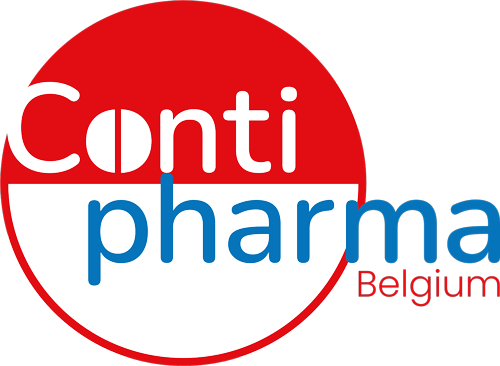Abiratérone

Qualitative and quantitative composition
Abiraterone 250 mg per tablet.
Pharmaceutical form and presentation
Tablets, 250 mg; box of 120 pcs.
Clinical information
Pharmacotherapeutic class
Antitumoral, antihormonal drug used in oncology; antiandrogen.
Therapeutic indications
Abiraterone acetate is an inhibitor of androgen synthesis. Androgen-sensitive prostate cancer responds to treatments that reduce androgen levels. Androgen suppressive therapies, such as LHRH agonists or orchiectomy, reduce androgen production in the testes but do not affect androgen production by the adrenal glands or in the tumor. When given at the same time as LH-RH agonists (or orchiectomy), abiraterone treatment lowers serum testosterone levels to undetectable levels (using commercially available assay methods). Abiraterone acetate is used in the treatment of prostate cancer.
Contraindications
Hypersensitivity to the active substance or to one of the excipients.
Women who are or may become pregnant. Severe hepatic impairment. The combination of abiraterone and prednisone/prednisolone with radium (Ra-223) is contraindicated.
Administration and precautions for use
This medicine is administered orally.
- The recommended dose is 1,000 mg taken once daily by mouth.
- To be taken without food (no food should be taken for at least 2 hours before and at least 1 hour after taking this medicine).
- The tablets should be swallowed whole with water.
If a dose is missed, take the usual dose the next day.
Drug and non-drug interactions
Concomitant administration of abiraterone acetate with inducers of cytochrome CYP3A4 (phenytoin, carbamazepine, rifampicin, rifabutin, rifapentine, phenobarbital, St John’s wort, etc.) should be avoided during treatment, unless there is no therapeutic alternative. Abiraterone acetate is also an inhibitor of Cytochromes P450 2D6 and 2C8: concomitant administration of drugs that are substrates of these cytochromes (dextromethorphan, propranolol, venlafaxine, pioglitazone, etc.) must comply with the enzalutamide Product Monograph and the ANSM thesaurus. Caution is recommended during administration with drugs activated or metabolised by CYP2D6 (metoprolol, propanolol, desipramine, venlafaxine, haloperidol, risperidone, propafenone, flecainide, codeine, oxycodone and tramadol), particularly those with a narrow therapeutic margin. In addition, patients should be monitored for signs of toxicity related to a CYP2C8 substrate (pioglitazone) with a narrow therapeutic index, if used concomitantly. Furthermore, as androgen suppression therapy is likely to prolong the QT interval, caution is advised when abiraterone acetate is administered with drugs known to prolong the QT interval, or drugs capable of inducing torsades de pointes, such as class IA (e.g. quinidine, disopyramide) or class III (e.g. amiodarone, sotalol, dofetilide, ibutilide) antiarrhythmics, methadone, moxifloxacin, antipsychotics, etc. Finally, spironolactone binds to androgen receptors and can increase prostate-specific antigen (PSA) levels. Use with abiraterone acetate is not recommended.
Undesirable effects
- The following adverse reactions have been observed very frequently (≥ 1/10): arterial hypertension; hypokalaemia; peripheral oedema (fluid and sodium retention).
- The following adverse reactions were frequently (≥ 1/100 to < 1/10) observed: left ventricular systolic dysfunction (decreased ejection fraction); heart failure; angina; atrial fibrillation.
- The following adverse reactions were observed infrequently (≥ 1/1000 to < 1/100): other cardiac rhythm disorders.
- Other adverse reactions observed with undetermined frequency were: myocardial infarction; QT interval prolongation.
Pregnancy and breast-feeding
Not applicable. Should not be used in women.
Overdose
If you swallow a large number of tablets at once, call your doctor, pharmacist or Poison Control Centre immediately.
Pharmaceutical information
Shelf life and precautions
Shelf life is 2 years.
Special precautions for handling and disposal
Any unused medicine or waste must be disposed of in accordance with current regulations.


